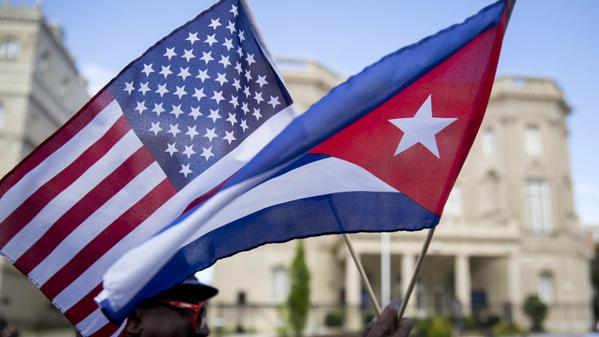US – Cuba relations: a long way to go
Opinions 28 August 2015 , by Margherita GenuaHistorical judgment needs a far-sighted approach and this is particularly true for the President Obama, who distinguished himself by opening gradual processes aimed at ridding Washington diplomacy from old constraints that have underpinned American foreign policy for decades and that are no more functional to Washington’s interests.
Indeed, the restoring of the U.S political ties with Cuba showed the Obama’s determination to deliver on promises made as presidential candidate in 2008, when he vowed to challenge “conventional Washington thinking” about America’s role in the world and pledged a new era of diplomatic outreach.
Like his predecessor Richard Nixon, who visited the People’s Republic of China in 1972, Obama made a historic move which is not just deeply important to the U.S. posture on the world stage, but the ultimate test of a central idea of Obama’s political thought: talking to U.S. adversaries instead of fighting them is a show of strength and not weakness.
Since the Obama’s first term, one of the President’s foreign policy goals was to open a new chapter in the US relations with the Southern hemisphere neighbors. The Obama – Castro meeting at the Summit of the Americas in Panama marked the first meeting between the two countries since they severed their ties in 1961.The full restoration of bilateral relations, which has been anticipated by the Obama decision to ease restrictions, include a review of Cuba’s status as a State Sponsor of Terrorism, which was the major obstacle to talks.
Albeit the recent reopening of the American embassy in Havana and the raising of the Cuban flag over their mission in Washington are obviously to be welcomed, full ties are still only on the horizon.
Indeed, as human rights issue in Cuba continue to be a concern for U.S. policymakers, lifting the embargo remains problematic. As matter of fact, the Cuban Democracy Act, one of the six statutes through which the embargo is enforced, maintain sanctions on Cuba as long as the Cuban government refuses to move towards democratization and greater respect for human rights.
Obama stated that the respect of human rights can be easier to achieve through engagement than isolation, but domestic politics made a U.S.-Cuba détente politically risky. Criticism came from leading Republicans, including presumed presidential candidate Marco Rubio, a Florida senator of Cuban descent, that engagement has been pursued despite a lack of change in the communist nation during the near 60-year US embargo.
The end of Cuba’s isolation, which started last year, could have a potential to considerably improve cooperation at the regional inter-American level. Nevertheless, lifting the embargo, as a legal matter, needs to be approved by the US Congress and thus remain uncertain.
Related Articles
The Daphne Caruana Galizia Prize for journalism
4 June 2022
Women’s everlasting fight for equality: the economic implications
26 November 2021The burning dilemma of gender in migration
26 November 2021
International W(human)’s Day
8 March 2021
Sign in
NEU newsletter
Subscribe to our newsletter and stay updated on the latest developments in key areas of European affairs, EU institutions' forthcoming activities and funding opportunities
Recent Posts
- Assessing Immigration Scenarios Amidst the Israel-Gaza Conflict
- Navigating the Middle East Crisis: EU’s Pursuit of Strategic Autonomy
- EU Strategic Autonomy in uncertain globe – newest Middle East crisis
- EU financial assistance to Palestinian people
- How the Middle East crisis affects European societies
Topics
- Economy (246)
- Editorial (203)
- Employment and Social Affairs (210)
- Energy (208)
- EU funding opportunities (215)
- EU Law (4)
- Events (3)
- External Relations (123)
- Future Europe (55)
- interviews (4)
- Migration (211)
- News (2)
- Opinions (37)
- Senza categoria (11)
- Social Policy (16)
- Space policy (15)







